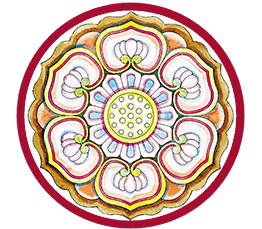What happened to Buddhism after the Tang Dynasty?
By Householder Fo'en
The historical event with the greatest impact on Buddhism was the "Huichang Dharma-Persecution," under Emperor Wuzong of the Tang. Before that, Buddhism had enjoyed its heyday.
The economic expansion of monasteries seriously dented government revenues. Moreover, Emperor Wuzong personally preferred Daoism. Induced by prime minister Li Deyu and Daoist priest Zhao Guizhen, he ordered the extermination of Buddhism and promotion of Daoism.
Buddhist scriptures and images were torched, temples were destroyed and their property confiscated, and monks and nuns were forced to resume secular life. In 845 Emperor Wuzong died after consuming Daoist elixirs. Xuanzong ascended the throne and tried to revive Buddhism, but it had been eviscerated. Following the fall of the Tang Dynasty, China entered into the period of the Five Dynasties and Ten Kingdoms, a time of war and turmoil.
Many commentaries and texts of the various schools were lost for good.
From Buddhism for Beginners – Questions and Answers
Characteristics
- Recitation of Amitabha’s name, relying on his Fundamental Vow (the 18th)
- Rebirth of ordinary beings in the Pure Land’s Realm of Rewards
- Rebirth assured in the present lifetime
- Non-retrogression achieved in this lifetime

The 18th Vow of Amitabha Buddha
If, when I achieve Buddhahood, sentient beings of the ten directions who sincerely and joyfully entrust themselves to me, wish to be reborn in my land and recite my name, even ten times, should fail to be born there, may I not attain perfect enlightenment. Excepted are those who commit the five gravest transgressions or slander the correct Dharma.
Guiding Principles
Faith in, and acceptance of, Amitabha’s deliverance
Single-minded recitation of Amitabha’s name
Aspiration to rebirth in Amitabha’s Pure Land
Comprehensive deliverance of all sentient beings
